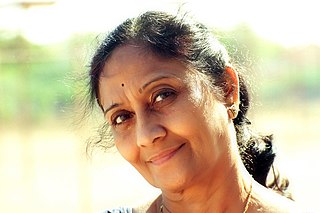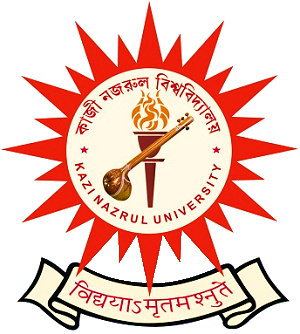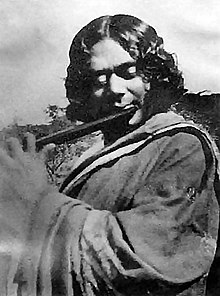
Kazi Nazrul Islam was a Bengali poet, short story writer, journalist, lyricist and musician. He is the national poet of Bangladesh. Nazrul produced a large body of poetry, music, messages, novels, and stories with themes, that included equality, justice, anti-imperialism, humanity, rebellion against oppression and religious devotion. Nazrul Islam's activism for political and social justice as well as writing a poem titled as "Bidrohī", meaning "the rebel" in Bengali, earned him the title of "Bidrohī Kôbi". His compositions form the avant-garde music genre of Nazrul Gīti.
Manarat International University (MIU) is a private university in Dhaka, Bangladesh. It was established in 2001 by the Manarat Trust.
Devdas is a Bengali novel by Sarat Chandra Chattopadhyay, first published in 1917 and adapted as a film many times.

Mirzapur Cadet College is a Military high school in Tangail, Bangladesh. Like other cadet colleges it follows the national curriculum prescribed by the National Curriculum and Textbook Board (NCTB) with English version and gives emphasis to extracurricular and co-curricular activities.

Mohammad Nurul Huda is a Bangladeshi poet, essayist, literary critic, translator and folklorist. He served as the Director General of Bangla Academy during 2021–2024.

Devdas is a 1979 film based on the Sarat Chandra Chattopadhyay novel, Devdas. The film stars Soumitra Chatterjee, Uttam Kumar, Sumitra Mukherjee, and Supriya Choudhury. The lyrics for the film's songs were written by Kazi Nazrul Islam.
Jail Killing Day is observed by the Awami League (AL) of Bangladesh and many other political organisations on 3 November every year. It commemorates the killing of four Awami League and national leaders: former vice-president Syed Nazrul Islam, former prime minister Tajuddin Ahmed and Captain (Rtd.) Mansur Ali, and former home minister A H M Quamruzzaman on this date in 1975.

Suzana Ansar is an English singer, actress and television presenter of Bangladeshi descent.

Suzana Ansar with Khansar is debut band album of Suzana Ansar, alongside band members Syed Ansar, Imran Khan and Yamin Chowdhury. Released for Eid ul Adha in November 2009, 'Suzana Ansar with Khansar' by G Series. It was in the top ten charts and featured on NTV (Bangladesh) programme Music Jamz.

Chashi Nazrul Islam was a Bangladeshi film director and producer. He won Bangladesh National Film Award for Best Director twice for the films Shuvoda in 1986 and Hangor Nodi Grenade in 1997. He was awarded Ekushey Padak in 2004 by the Government of Bangladesh.

Varsha Mahendra Adalja is an Indian Gujarati language feminist novelist, playwright and negotiator who won the 1995 Sahitya Akademi Award for Gujarati language for her novel Ansar. She is also a dramatist, writing for stage plays, screenplays, and radio.

Kazi Nazrul University (KNU) is a public state research university located in Asansol, West Bengal. The CM Mamata Banerjee laid the foundation stone on 10 January 2013. The university has been named after the poet Kazi Nazrul Islam. The university was established under the Kazi Nazrul University Act, 2012. Anuradha Mukherjee was appointed as the first vice-chancellor of the university. In 2018 in a special convocation the university honored Ex Prime Minister of Bangladesh Sheikh Hasina with honorary Doctorate of Literature.

Devdas is a Bengali-language film based on the Sharat Chandra Chattopadhyay novel Devdas. It was the first Bangladeshi version of the story and the first colour film version in Bangladesh. It was the first of two versions directed by Chashi Nazrul Islam.

Shiulimala (1931) is a book of short stories, written by Kazi Nazrul Islam. This book contains four stories. The stories contained in the volume are: Padmagokhra, Shiulimala, Ognigiri, Jiner Badsha. These stories are erotic. Here we find romantic Nazrul. However, Nazrul made great contributions in Bengali.
Shuvoda is a 1986 Bangladeshi Bengali-language film directed by Chashi Nazrul Islam based on Sarat Chandra Chattopadhyay's novel of the same name.

Fatema Tuz Zohra is a Bangladeshi Nazrul Geeti singer. She was awarded Ekushey Padak in 2006 by the government of Bangladesh. She sings Nazrul Geeti and modern songs. She has acted in television dramas, and performed in various programs. She published a book of poems, a book of two rhymes, a novel, a collection of stories and columns and a music book with Nazrul's songs.
Nashid Kamal is a Bangladeshi vocalist, writer and professor of demography. She is the eldest granddaughter of Bengali folk singer Abbasuddin Ahmed. Kamal is widely regarded as a Nazrul exponent. For her contributions to Nazrul's works, she has received awards including the Nazrul Award from the Nazrul Academy in 2009 and Nazrul Padak from the Nazrul Institute in 2014.
Hangor Nodi Grenade is a 1997 film directed by Chashi Nazrul Islam. The story is based on the novel of the same name by Selina Hossain. That film won Bangladesh National Film Award in three categories including Best Director, Best Story and Best Actress. It is one of the most critically acclaimed Bangladeshi films.
Atchala Ghar is a historical house. It is a memorial place related to Kazi Nazrul Islam. It is located on the Darshana–Mujibnagar road in Karpashdanga Union of Damurhuda Upazila, about 20 kilometers southwest of the district town of Chuadanga.












